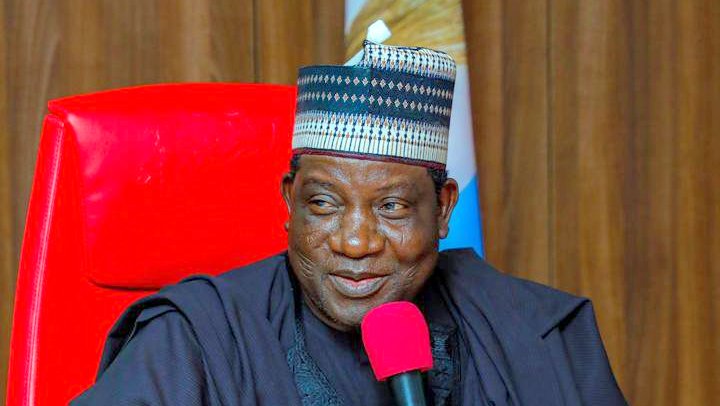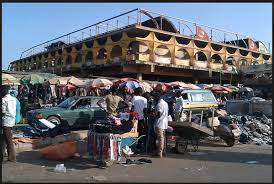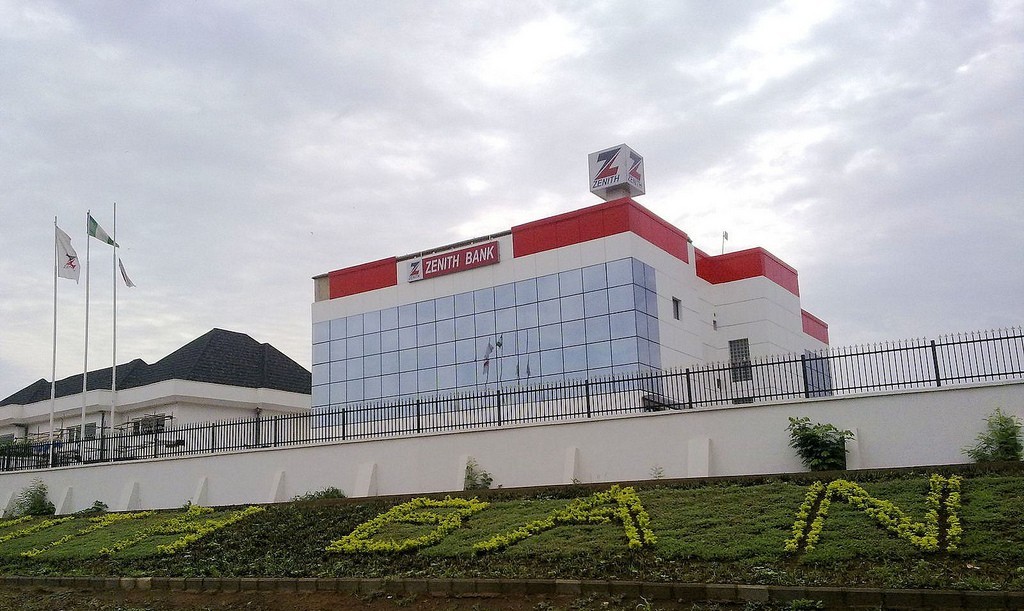Decade-long sectarian conflict in Plateau threatens N10bn deal with Jaiz Bank

The people of Plateau State want their beloved Jos ultramodern Terminus Market rebuilt, but not in partnership with Shariah-compliant bank
By Joseph Dangyang in Jos.
Conceived in1975 and completed 10 years later in 1985, the forward-looking and sprawling Jos Terminus Main Market, was the socio-economic signature of the old Benue-Plateau, and later Plateau State. The market was ultramodern and rated by tourists as the best of its kind in the West African sub-region. Its architectural design had no equal in this part of Africa, and unarguably represented the beauty of Jos. It stood as the pride of people, besides the fact that it was a commercial hub, as well the economic backbone of Plateau state – until it was destroyed in a fire outbreak in 2002. No conclusive investigation has unraveled the cause and/or criminals behind the monumental disaster, as Governor Joshua Dariye, who set up a commission of inquiry into it, failed to release the report of the investigation.
No conclusive investigation has unraveled the cause and/or criminals behind the monumental disaster
Since the tragedy, the people of Plateau State have lived with the nostalgia of the main market’s beauty and benefits. Beyond fond memories, rebuilding the Jos Terminus market has been a strategic political promise for governorship hopefuls in Plateau State, and Governor Simon Bako Lalong was not exempted. He vowed to crack the difficult nut of restoring the magnificent glory of the market, among several promises he spread out to win the hearts and votes of the people in 2015.
Governor Lalong leaped to victory in 2015 elections on the banner of the All Progressives Congress (APC), leaving sour and shocking taste of defeat in the camp of then the ruling Peoples Democratic Party (PDP). However, seven years into his eight-year double terms, the restoration of the market has entered the long list of hollow political pledges that have discredited many Nigerian politicians. In the twilight of his administration, Governor Lalong, in the similitude of a fire-brigade approach, is entangled in a culturally miscalculated investment partnership with Jaiz Bank, a Shariah-compliant financial institution in Nigeria.
Since the tragedy, the people of Plateau State have lived with the nostalgia of the main market’s beauty and benefits
Jaiz Bank, licensed in 2003, with a capital base of N87.3 billion, as at 2018, has partnered with the federal government on several projects, among them Sukuk funded, used for the repair of roads in parts of Nigeria. Plateau authorities claimed that Jaiz bank had carried out similar market reconstruction Private Public Partnership projects in Kano, Kaduna and Niger States, but the veracity of the argument is yet to be established. However, Jaiz Bank’s Shariah persuasion may be responsible for the rejection of the deal by a cross-section of the people of the majority Christian Plateau state.
Investopaedia, an online financial investment platform, says “Shariah-compliant funds have many requirements that must be adhered to [in investment transactions]. Some of the requirements for a Shariah-compliant fund include the exclusion of investments which derive a majority of their income from the sale of alcohol, pork products, pornography, gambling, military equipment or weapons. Other characteristics of a Shariah-compliant fund include an appointed Shariah board, an annual Shariah audit and purifying certain prohibited types of income, such as interest, by donating them to a charity. For example, Shariah boards are constituted of Islamic scholars whose fees can run into millions of dollars per year, adding to the overall cost of managing the fund.”

Burnt Jos Altra-Modern Market
Though neither words like ‘Shariah’ nor ‘Islamic’ feature in the 14-page MoU seen by The Insight, ‘non-interest,’ a core feature of Islamic investment, is mentioned once. But the master plan of the market, as it will be rebuilt, is not in circulation. The Insight learnt that the master plan contains an imposing mosque, a symbolic structure that gives the impression that Islam is dominant in the state. Such impression may be vehemently resisted in the conflict-prone Plateau State where sectarian crisis that has lasted for over a decade has claimed thousands of lives and is responsible for the destruction of properties and causing disturbing social disorder.
Governor Lalong turned to Jaiz Bank for investment in the reconstruction of the huge market as a last resort, as the state government lacks the fund to prosecute the gigantic reconstruction work. Jaiz Bank Plc is, however, not the first investment organization to express interest in the attractive project. In 2016, the government actually signed a Memorandum of Understanding (MoU) with a United Kingdom-based Roughton International Limited, in collaboration with Cynergy Associates Consortium, to the tune of N230 million for the first phase of the redevelopment of the market. Six years after, the people are yet to see any visible step to rebuilt it, and little or no explanation has been provided about the status of the deal. A fresh deal with Jaiz Bank Plc presupposes that the previous one had been aborted, perhaps, prematurely.
The master plan contains an imposing mosque, a symbolic structure that gives the impression that Islam is dominant in the state
The MoU with Jaiz Bank, which has ignited widespread agitation in the state, empowers the Islamic bank to build the market, operate it and later transfer it to the state government, after 40 years. Details of the transaction explained by the state government indicated that, “Jaiz Bank will finance the reconstruction of the market 100%, with the Plateau State government not required to pay a kobo. That the land (over 7.4 hectares) is the only equity of the Plateau State government, which it is contributing to the project.”
It says further that “the project will be done in three phases yielding a total of 4,321 shops which will be shared in the ratio of 60% (Jaiz Bank) 40% (Plateau Government). The the 60-40% ratio is for the purpose of leasing out the shops only. The entire market still belongs to the Plateau State government. That those who lease the shops from either Plateau State government or Jaiz bank will own it for a period of 40 years, after which ownership returns to the government. At this point, new investors can purchase from the State Government or the existing buyers would renew their leases.
Jaiz Bank’s Shariah persuasion may be responsible for the rejection of the deal
“That as soon as Jaiz Bank finishes selling its 60%, it will cease to have any interest in the market, as those holding the lease will deal only with the Plateau state government, through the management of the Market (Jos Main Market Authority) and the Ministry of Commerce, which is a parastatal of the government.
“That the entire shops will be sold to interested buyers without prejudice to faith, ethnicity or political affiliations. It is open for the public to invest in.
“That the first phase will be delivered and commissioned before the end of the tenure of Governor Lalong.”
The contractual terms stated above was entered between the state government and Jaiz bank, all that was left was the formal signing of the MoU.
The Insight learnt that even close associates of Governor Lalong were not pleased with the plans. The PDP quickly raised an alarm, notifying the Plateau public about the deal with Jaiz Bank. Exposed in a manner that pointed to a betrayal by the government, Plateau exploded in shock over the deal, leading to a seeming consensus among them to fight a ‘common enemy.’
In a statement signed by the state publicity secretary of the PDP, John Akans, it said, “The party has it on good authority that the state government has reached an advanced stage in its plan to sign a Memorandum of Understanding, with Jaiz bank (a commercial bank) …with the view to handing over the entire market to the said bank to run for 40 years at the cost of N10 billion.”
The opposition party demanded that “Lalong should explain to Plateau people the logic in mortgaging a market with a fiscal multiplier effect in the state’s income that will benefit the citizens…”
The PDP’s reaction was followed by another opposition rhetoric from the Youth Wing of the Christian Association of Nigeria (YOWICAN), Plateau State chapter, which called on the state to, as a matter of urgency, suspend negotiations with Jaiz Bank. The Plateau State YOWICAN chairman Pharm. Markus Kanda and secretary Nehemiah Michael, made their position known while addressing newsmen at the CAN secretariat Jos.The youths warned that giving Jaiz bank over 60 percent control of the market when completed was perceived to be enslavement and mortgage of the people’s destiny.
Key Points
- The people feel a 40-year deal is too long a period for Jaiz Bank to control the central market.
- There are fears that Islamic culture may be imposed on the people if the project is executed by Jaiz Bank.
- There was poor or little consultation before the MoU was prepared
- Stakeholders in the state were suspicious because the MoU came at the twilight of Governor Lalong’s administration
- A case at Plateau High Court has halted further action on the MoU
- Government must seek alternative funding to execute the project
A member of House of Representatives from Jos East/Jos South federal constituency, Hon Musa Baggos, also reacted sharply, saying, “the news of the 40-year lease/funding agreement between the State government and Jaiz Bank has sent shivers down the weak and battered spines of citizens who view a 40-year Jaiz control and management of the market as reckless, risky and an act of mortgaging the future of the state.”
The Jaiz bank deal also received stiff resistance from the Christian Association Nigeria (CAN), Plateau State Chapter, and a coalition of indigenous ethnic youth leaders of the state. Plateau State CAN Chairman, Rev Fr Polycarp Lubo, who spoke to journalists after a stakeholders meeting in Government House, Jos said, “We have advised the Government to put the deal on hold, until proper consultations are done.”
He pointed out that the major fears of the stakeholders, as discussed, was the partnership with Jaiz Bank, an interest-free bank which is 100% Sharia-compliant, considering Plateau as a Christian-dominated State.
Then a coalition of Plateau Indigenous Youths, made up of over 40 ethnic groups, called on all men and women of conscience, the youths, NGOs and other civil society organizations to rise up in unity, to unequivocally condemn this ‘despicable decision” of the Lalong Government. The coalition warned, “The Lalong administration should desist from the ill-conceived last-minute decision that [could] jeopardize the collective interest of Plateau people, particularly, the youths.”
The people moved beyond warning and threatening to practically demonstrate their opposition to the deal with Jaiz Bank. Hon Musa Baggos rushed to court to obtain injunction from the state High Court to stop Governor Lalong from signing the MoU with Jaiz.The injunction, which was granted on Tuesday August 2, 2022 by Hon. Justice S. P Gang, restrains the Plateau State Government and Attorney General and Commissioner for Justice, Plateau State, from signing any MoU with Jaiz Bank, pending hearing of the substantive suit.
Though the people would like to see the return of energetic and bustling activities at the market, they would prefer an alternative deal
Though the people would like to see the return of energetic and bustling activities at the market, they would prefer an alternative deal, say from the bond market, or funding from Plateau State indigenes in the Diaspora, or crowdfunding, or funding from any other traditional financial sources, instead of mortgaging the market to an Islamic bank for 40 years.
Read also… The kanuris fly their flag again



